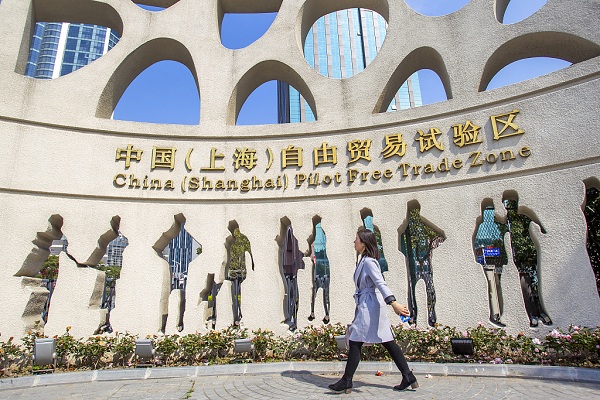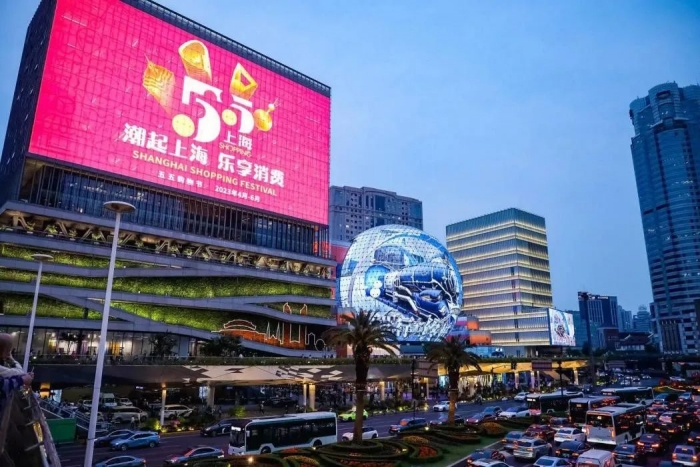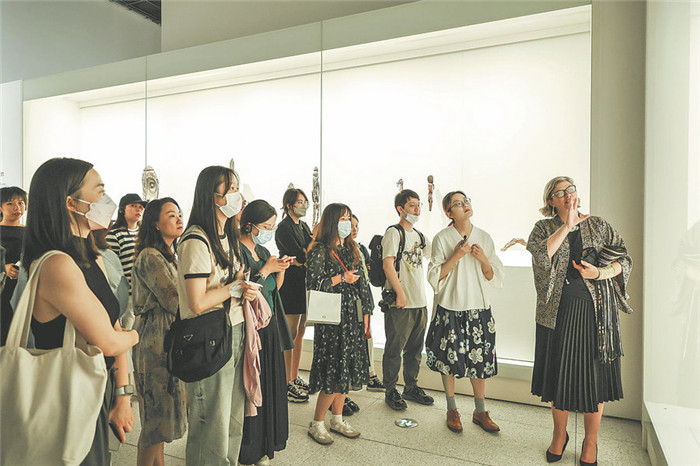Area added to Shanghai FTZ to spur sectors

A woman walks in the Shanghai FTZ. [Photo/China Daily]
Goal is to replicate development model nationwide, enhance competitiveness
China announced on Tuesday that it has added the Lingang area to the China (Shanghai) Pilot Free Trade Zone to enhance investment and advance trade liberalization with plans to replicate the concept nationwide, senior officials said.
Under the plan, the new area will be set up to the south of the Dazhi River, east of Jinhui Port, and south of Xiaoyangshan Island and Pudong International Airport in Shanghai.
The area launched in this phase will cover 119.5 square kilometers, according to the plan for the area, issued by the State Council.
Vice-Commerce Minister Wang Shouwen said the new area will facilitate investment and operations, free import and export of goods, ease fund flows and open transportation and convenient access to information with offshore markets.
He said all these factors will enable the Shanghai FTZ to better serve and integrate major national strategies and contribute to the overall strategic arrangement of the country's opening-up.
Under the plan, the Lingang area will have a relatively mature institutional system of investment and trade liberalization and facilitation by 2025.
By 2035, it will be built into a special economic zone with strong global market influence and competitiveness, helping China further integrate with the global economy.
To ensure smooth business development, Wang said the government will form a comprehensive risk management system from different dimensions including supervision and border security to improve the nation's capability of risk prevention and control in the zone.
For companies in the zone in key industries - such as integrated circuits, artificial intelligence, biomedicine and civil aviation - the business income tax rate will be 15 percent within five years of establishment.
Such an arrangement will help foster and develop advanced technologies and drive the development of relevant areas, said Chen Yin, executive vice-mayor of Shanghai.
"We will continue to explore incentive policies related to individual income taxes of overseas talent, and will actively explore tax policies for investment and financing, as well as free trade accounts," Chen said.
The new Lingang area will be granted greater administrative power for self-development, self-reform and self-innovation, and will regularly share its experience to spearhead a new round of reform and opening-up in the Yangtze River Delta, according to its development plan.
 Contact Us
Contact Us

 New pedestrian street boosts Pudong's night economy
New pedestrian street boosts Pudong's night economy  Festival injects vitality into Shanghai's consumer market
Festival injects vitality into Shanghai's consumer market A journey through history
A journey through history Chinese roses bloom in Pudong
Chinese roses bloom in Pudong


